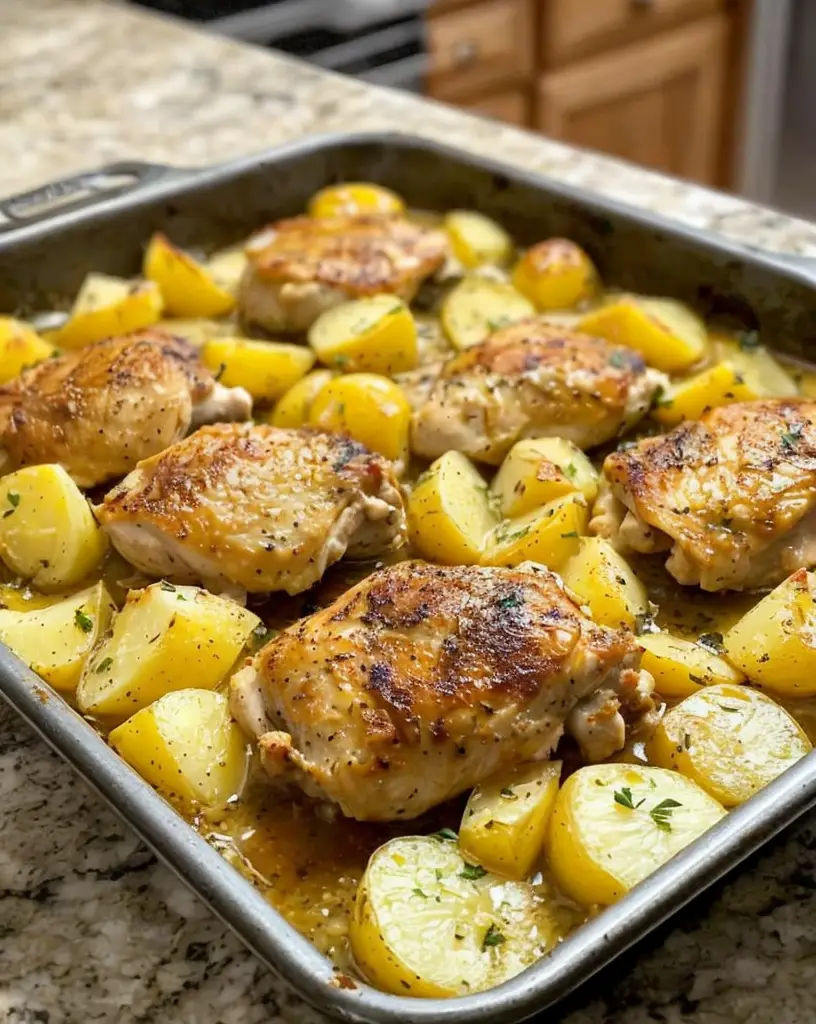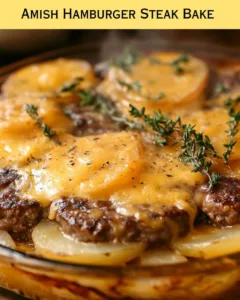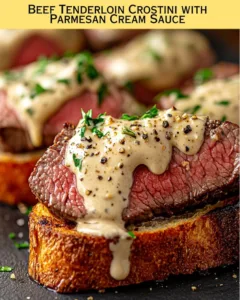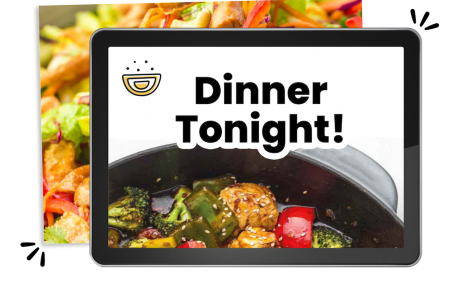Greek Lemon Chicken and Potatoes: A Flavorful Mediterranean Delight
Welcome to the vibrant world of Mediterranean cuisine with our Greek Lemon Chicken and Potatoes recipe. This dish combines succulent chicken marinated in zesty lemon juice and flavored with aromatic herbs, all lovingly roasted alongside golden, crispy potatoes. With every bite, you’ll experience the fresh and lively flavors of Greece, making this dish not just a meal, but an experience that transports you to sun-drenched shores and bustling tavernas. Ideal for family gatherings or a cozy dinner at home, this recipe embodies warmth, simplicity, and the joy of good food shared with loved ones.
The bold aromas of garlic and oregano mingle beautifully, while the tangy lemon brightens the rich flavors of the chicken and potatoes, creating a harmony that is truly satisfying. Imagine serving this colorful platter at your next dinner party, delighting your guests not only with a delicious dish but also with its beautiful presentation. It’s time to gather your ingredients and embark on this culinary adventure!
Quick Recipe Highlights
- Flavor Profile: This Greek Lemon Chicken and Potatoes dish boasts a blend of citrusy brightness from fresh lemons, earthiness from potatoes, and a hint of savory herbs.
- Texture: Enjoy tender, juicy chicken contrasted with crispy glazed potatoes that provide a delightful crunch, ensuring a satisfying mouthfeel with every bite.
- Aroma: The aroma of roasted garlic combined with fresh lemon and herbs will fill your kitchen, invoking warm, homely feelings.
- Visual Appeal: This dish is as visually inviting as it is delicious, with golden-brown chicken and vibrant, roasted potatoes accentuating your dinner table.
- Skill Level Needed: This recipe is beginner-friendly, making it simple for new cooks but offering enough depth of flavor to please experienced chefs.
- Special Equipment: All you need is a baking dish or sheet, a knife for prep, and basic kitchen utensils.
Recipe Overview
- Difficulty Level: With straightforward steps and minimal techniques required, this recipe is labeled as easy, perfect for anyone looking to impress with minimal fuss.
- Category: This dish fits wonderfully as a main course for family dinners, and it’s also a great option for meal prep, adding variety to your weekly menu.
- Cuisine: Rooted in Greek culinary traditions, this recipe highlights the importance of fresh ingredients, simple flavors, and communal dining experiences.
- Cost: The ingredients used are affordable and easy to source, making this dish a budget-friendly option without sacrificing quality or flavor.
- Season: Enjoy this recipe year-round, but it shines particularly in the warmer months when fresh herbs are abundant and outdoor dining is a pleasure.
- Occasion: Perfect for any gathering, from casual weeknights to festive celebrations, this dish tells a story of love and enjoyment around the dinner table.
Why You’ll Love This Recipe
This Greek Lemon Chicken and Potatoes will quickly become a favorite for many reasons. Its taste and texture offer a delightful balance of savory chicken with a hint of citrus freshness that brightens the palate. The tender meat paired with crispy potatoes creates an enjoyable contrast that elevates the entire meal experience.
Not only is this recipe delicious, but it also offers convenience in preparation. With simple steps and a hands-off cooking process, it allows you to engage with family or relax while the oven does the work. This dish is fuss-free yet presents beautifully, making it ideal for entertaining guests.
Health-wise, this dish packs an array of nutrients, thanks to the wholesome ingredients. Chicken is a great source of protein, while the potatoes provide carbohydrates and fiber. With fresh herbs and lemon, you also gain additional vitamins and antioxidant benefits, providing both flavor and nutrition in every bite.
Furthermore, this recipe is perfect for social gatherings. The warm, inviting aroma and colorful presentation create an appealing atmosphere, encouraging everyone to come together and share their love for food. This dish encourages conversation, laughter, and connection, enhancing any dining occasion.
Finally, its accessibility and cost-effectiveness set it apart from other complex recipes. The straightforward preparation and common ingredients make it a go-to option for both special occasions and everyday meals. Impressing your family or guests has never been easier!
Historical Background and Cultural Significance
Greek cuisine is known for its emphasis on fresh, high-quality ingredients, and this dish exemplifies that ethos perfectly. Originating in the Mediterranean region, Greek food celebrates the use of local produce, meats, and herbs, deriving its unique flavors from traditional cooking methods and local customs. Lemon chicken has been a staple in Greek households for generations, reflecting the agricultural abundance found in the region.
The significance of sharing meals in Greece cannot be overstated. Food is central to social gatherings and family life, where dishes like Greek Lemon Chicken and Potatoes invite people to gather around the table. This recipe encapsulates the essence of Greek hospitality, known as “philoxenia,” which translates to love of strangers, showcasing the welcoming nature of Greek culture.
Over time, the recipe has evolved, with numerous variations emerging in different regions of Greece, incorporating local ingredients and family traditions. This adaptability ensures that the dish remains a comforting and familiar option for many while allowing for personal touches to be added by each cook.
Regional variations can be seen with the use of different herbs or additional vegetables, reflecting personal and family preferences. This flexibility makes Greek Lemon Chicken and Potatoes not just a recipe, but a canvas for creativity, personalization, and culinary exploration.
Ingredient Deep Dive
– Chicken: Historically, chicken has been a preferred protein in Greek cuisine, valued for its versatility and availability. Rich in protein, chicken is beneficial for muscle health and overall nutrition. Choosing organic or free-range options tends to enhance flavor and quality. For storage, keep raw chicken refrigerated and use within 2 days for optimal freshness.
– Potatoes: A staple food in Greece, potatoes are embraced for their adaptability in recipes. They provide necessary carbohydrates and fiber, making them a filling addition. Look for firm potatoes without blemishes. Store in a cool, dry place. If you’re out of potatoes, consider substituting with sweet potatoes for a unique twist.
– Olives: A quintessential component of Greek cooking, olives add rich, briny notes that enhance many dishes. They are loaded with healthy fats, particularly oleic acid, which supports heart health. Choose high-quality olives and store them in brine for longevity. If unavailable, consider using sundried tomatoes as a substitute.
– Fresh Herbs: Oregano, thyme, and parsley bring freshness and complexity to the dish. Excellent sources of antioxidants, these herbs contribute both flavor and nutritional benefits. Purchase fresh herbs when possible for maximum flavor, and store them in a damp paper towel in the fridge. Dried alternatives can be used, but adjust quantities as needed.
– Lemons: The bright acidity of lemons not only flavors the dish but also enhances the overall aesthetic appeal. Lemons are packed with vitamin C and can aid digestion. Opt for organic lemons when possible. Store them at room temperature if used frequently or in the fridge for longer shelf life.
Common Mistakes to Avoid
- Over-marinating the chicken can lead to a soggy texture; limit marinading time to 30-60 minutes.
- Using unseasoned potatoes might result in blandness; seasoning them well ensures a flavorful bite.
- Not letting the chicken rest after cooking can result in loss of juiciness, so allow it to sit for a few minutes.
- Skipping olive oil can lead to dry chicken; a generous drizzle keeps everything moist and flavorful.
- Ignoring cooking times can lead to undercooked or overcooked chicken; use a meat thermometer for accuracy.
- Overcrowding the baking dish can prevent even cooking; use two dishes if needed to ensure proper heat circulation.
- Choosing low-quality ingredients can diminish the overall flavor; invest in fresh, high-quality components.
- Not adjusting seasonings after cooking can lead to unbalanced flavors; taste before serving and adjust accordingly.
- Failing to preheat the oven can affect cooking times; always ensure the oven is properly heated before starting.
- Not using enough lemons can lead to a dull taste; zest and juice generously for the best results.
Essential Techniques
Marinating chicken is crucial for flavor and tenderness. Use citrus, oil, and herbs to boost flavor profiles. Avoid long marinades as they can negatively affect the chicken’s texture; 30-60 minutes is ideal. Look for a silky texture before cooking, indicating the marinade has properly absorbed.
Roasting techniques elevate the dish’s flavor. Start with high heat to achieve a crispy exterior, followed by lower heat to cook through without drying out. Keep an eye on the color—golden-brown is the goal. Use a meat thermometer to check for doneness, targeting 165°F (75°C) in the thickest part of the chicken.
Pro Tips for Perfect Greek Lemon Chicken and Potatoes
– Opt for bone-in chicken pieces for extra flavor and juiciness compared to boneless cuts.
– Use a combination of yellow and red potatoes for color variety and different textures.
– Don’t skip the fresh herbs; they greatly enhance the flavor profile and aesthetic appeal.
– For a crispy finish, consider broiling the chicken for a few minutes before serving.
– Adding lemon slices on top of the chicken while baking enhances both flavor and appearance.
– Experiment with additional spices, like smoked paprika, for a unique flavor twist.
– Serve with extra lemon wedges on the side for guests to customize their plates.
– Pair this dish with a crisp Greek salad to add freshness and balance to the meal.
Variations and Adaptations
Regional variations of this dish may include the addition of Kalamata olives or capers for a tangy burst of flavor representative of Greek cuisine. In the summer, you can add seasonal vegetables like zucchini or bell peppers alongside the chicken and potatoes, enhancing the dish’s freshness.
For vegan adaptations, substitute chicken with marinated tofu or tempeh, ensuring to allow marination time to absorb the flavors. The potatoes can then be roasted with additional vegetables to create a hearty, flavorful meal.
Consider seasonal adaptations by incorporating herbs like rosemary in winter for a heartier flavor profile, whereas, in spring, fresh dill could brighten the dish beautifully. Feel free to play with spices to reflect your own taste preferences!
Serving and Presentation Guide
For an appealing presentation, serve the chicken and potatoes on a large platter, garnished with freshly chopped herbs. Consider adding lemon wedges around the circumference for a bright touch.
Use rustic serving dishes to enhance the Mediterranean vibe, and consider pairing the dish with a colorful salad, such as a traditional Greek salad, featuring feta cheese and olives to add additional textures and flavors.
Temperature is key for serving; ensure your dish is hot, but let it rest for a few minutes before carving for improved juiciness. For portion control, consider serving individual plates family-style, allowing guests to serve themselves.
Wine and Beverage Pairing
White wines such as Sauvignon Blanc or a crisp Greek Assyrtiko complement the citrusy notes of the dish beautifully, providing a refreshing contrast. Rose wine also works marvelously, enhancing the summer-inspired flavors while keeping the palate clean.
If you’re looking for non-alcoholic options, consider serving sparkling water flavored with lemon and mint to echo the dish’s freshness. Herbal infusions such as ginger tea can also serve well, balancing the richness of the meal with their brightness.
When serving coffee or tea, opt for lighter varieties that don’t overpower; a refreshing mint tea works particularly well, enhancing the Mediterranean experience.
Storage and Shelf Life
To store leftover Greek Lemon Chicken and Potatoes, place them in an airtight container and keep them in the refrigerator for up to three days. When reheating, make sure to do so in the oven or microwave until thoroughly heated through.
For longer storage, you can freeze the dish for up to three months. Make sure to use a freezer-safe container and label it with the date.
When reheating frozen portions, allow them to thaw overnight in the refrigerator or use the microwave for quick defrosting. Always reheat to a safe internal temperature of at least 165°F (75°C) to ensure food safety.
Make Ahead Strategies
You can marinate the chicken the night before, allowing the flavors to develop much deeper. Simply place the marinated chicken in a covered container in the fridge, then cook it when ready.
For potatoes, you can prep them by washing, peeling, and cutting them in advance, storing them in water to prevent browning. Just drain and season them when you’re ready to cook.
If you’re hosting, consider preparing a side salad ahead of time; it complements the main dish beautifully while saving you time on the day of the event.
Scaling Instructions
If you’re looking to halve the recipe, maintain the same flavor balance—just adjust cooking times as necessary. When doubling or tripling, ensure your baking dish is large enough to accommodate all components without overcrowding.
For times, you may need to increase overall cooking time slightly, checking for doneness with a meat thermometer. Be cautious not to overcook chicken, adjusting oven temperature or using multiple pans when necessary.
When scaling, keep storage considerations in mind; larger portions may require larger containers for proper refrigeration or freezing.
Nutritional Deep Dive
This Greek Lemon Chicken and Potatoes dish offers a solid macro breakdown, featuring lean protein from the chicken, complex carbohydrates from the potatoes, and healthy fats from olive oil. Portion control ensures balanced servings of every nutrient.
In terms of micronutrients, the dish is rich in vitamins C and B6, essential for immune function and energy metabolism, thanks to the lemon and chicken. Fresh herbs contribute antioxidants, promoting overall health.
This recipe supports weight management due to its high protein and fiber content, both of which provide satiety, helping to manage hunger levels effectively.
Dietary Adaptations
For gluten-free adaptations, this recipe is naturally gluten-free as all key ingredients do not contain gluten. Just be cautious of any cross-contamination with packaged ingredients.
If vegan, replace chicken with hearty vegetables or plant proteins. For a dairy-free option, simply omit cheese garnishes or creamy sides.
For low-carb diets, focus on using fewer potatoes or substitute them with cauliflower to create a lower-carb version while maintaining overall flavor.
For paleo diets, ensure to use fresh, whole foods and avoid processed ingredients, sticking to the natural ingredients in this recipe.
Troubleshooting Guide
If the chicken turns out dry, it may have been overcooked. Always use a meat thermometer to achieve the perfect temperature without exceedance.
Should the potatoes come out mushy, they were likely overcooked; ensure to check them frequently during the roasting process.
If flavors are unbalanced, take notes on portion sizes and adjust herbs and spices as per your preference in future attempts to suit your taste better.
Similar issues with texture could arise from improperly preheating your oven; ensuring it’s at the correct temperature before cooking can greatly impact final results.
Recipe Success Stories
Many home cooks have shared their successes, praising the dish for its relatable flavors and ease of preparation. Variations with seasonal vegetables have been particularly well-received, allowing everyone to personalize their experience.
Others have noted how it becomes a staple for family dinners, with readers often expressing their delight at how quickly it comes together. It’s created wonderful moments around the dinner table, connecting loved ones over shared deliciousness.
Photography tips offered by many community members, featuring vibrant colored plates and garnish suggestions, have showcased the beauty of this dish, making it a showstopper event after event.
Frequently Asked Questions
How long can I store leftovers?
You can safely store leftovers in the refrigerator for up to three days, or freeze them for up to three months.
Can I use different types of potatoes?
Yes, feel free to use any potatoes you prefer—golden, red, or even sweet potatoes can work beautifully in this recipe.
What herbs can I substitute?
If you don’t have oregano, try thyme or rosemary, which also capture some of the Mediterranean flavor profile.
Can I make this dish in advance?
Marinating the chicken overnight is a great make-ahead strategy, and you can prep the potatoes in advance as well.
Is this recipe suitable for meal prep?
Yes, portioned servings are perfect for meal prep! Simply reheat as needed during the week for quick, delicious meals.
What should I serve with this dish?
A Greek salad, tzatziki sauce, or crusty bread pair excellently with Greek Lemon Chicken and Potatoes.
Can I use skinless chicken?
Skinless chicken is workable but may lack some of the richness that the skin contributes. Adjust cooking time accordingly.
How spicy is this recipe?
This dish is mild; however, you can add red pepper flakes for a spicy kick if you prefer!
Can I use fresh tomatoes?
Absolutely! Fresh tomatoes can be a lovely addition, adding an extra layer of flavor.
Do I have to use lemon?
Lemon is a key component, but other citrus fruits like orange can be used for a sweeter flavor profile.
Additional Resources
Explore related recipes to expand your Mediterranean cooking repertoire, including flavorful Greek salads, tzatziki sauces, and other delightful main courses that share similar vibrant profiles. Consider technique guides for marinating and roasting chicken to further enhance your culinary skills.
For ingredient information, learning about the local flora of Greek cuisine can help in selecting the freshest herbs. Equipment recommendations can help ensure you have everything you need for optimal results, from sturdy roasting pans to quality kitchen knives.
Stay inspired with seasonal variations; think about combining this recipe with vegetables that are in season to add freshness and variety to your meals.
Join the Conversation
Engage with our community by sharing your unique experiences with this Greek Lemon Chicken and Potatoes recipe. Share your cooking tips, adaptations, and feedback through social media, enhancing our shared love for delicious food.
Photography enthusiasts can explore ways to capture the dazzling colors and textures of the dish, offering guidance and inspiration to others looking to showcase their culinary endeavors.
Don’t forget to leave a review and suggest any variations you’ve made to this beloved recipe—we love hearing from our community members and learning about your journey in the kitchen!
The Recipe
Greek Lemon Chicken and Potatoes
Serves: 4 servings
Prep Time: 15 mins
Cook Time: 45 mins
Total Time: 60 mins
Kitchen Equipment Needed
- Baking Dish
- Knife
- Cutting Board
- Cooking Spoon
- Meat Thermometer
Ingredients
- 4 chicken thighs, bone-in
- 2 pounds potatoes, cut into wedges
- 1/4 cup olive oil
- Juice and zest of 2 lemons
- 4 cloves garlic, minced
- 2 teaspoons dried oregano
- Salt and pepper to taste
- Fresh parsley for garnish
Directions
- Preheat your oven to 400°F (200°C). In a large bowl, combine olive oil, lemon juice, lemon zest, garlic, oregano, salt, and pepper.
- Add chicken thighs to the bowl, ensuring they are well coated in the marinade. Let marinate for at least 30 minutes.
- Place potatoes in a separate bowl and drizzle with olive oil, salt, pepper, and any leftover marinade.
- Arrange the chicken in a baking dish, placing the potatoes around them.
- Bake for 45 minutes or until chicken is cooked through and reaches an internal temperature of 165°F (75°C) and the potatoes are golden brown.
- Let rest for a few minutes before serving. Garnish with fresh parsley.
Recipe Notes
- For added depth, you can include sliced onions or other vegetables in the roasting pan.
- Feel free to adjust marination time based on your schedule; up to overnight is wonderful.
- Leftovers can be stored in an airtight container and refrigerated for up to three days.










